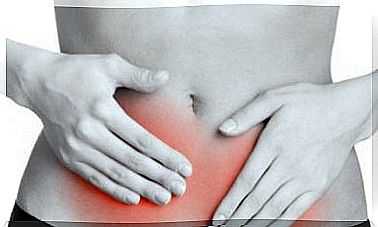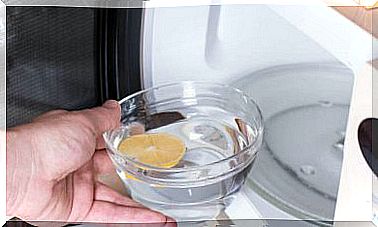What Can Cause Fluid Retention?
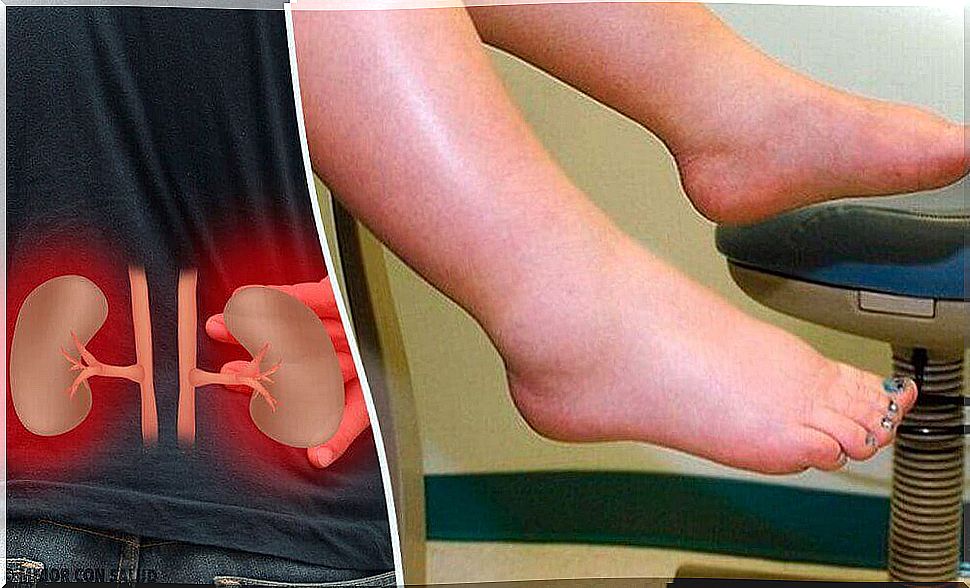
Fluid retention, or fluid retention, affects men and women all over the world. It can happen at different stages of life. The most affected areas are the feet, ankles, hands and abdomen. But what can cause fluid retention?
The human body consists of about 70% fluid. However, if it does not circulate and is distributed in a balanced way throughout the body, then we will suffer some consequences.
The most important factor in the regulation of fluids is the kidneys. Any problem with the kidneys can cause fluid retention.
What can cause fluid retention?
It can arise due to many different factors. It is often possible to recognize people who suffer from this problem. They may not know the reasons for its occurrence or the right measures to prevent it.
It is important to be able to identify the reasons so that you can seek the right treatment. Or just so you can prevent it in the future.
Environmental factors
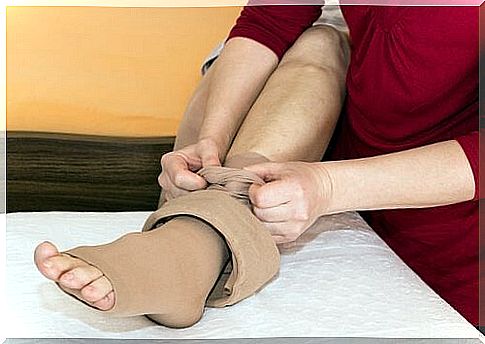
- Excessive heat can cause fluid to leak from the blood vessels without the tissues being able to absorb it all.
- A job that requires you to sit or stand in the same position for a long time. But long journeys, where you have to sit for a long time, can also cause a build-up of fluid.
Obviously we cannot change the temperature outside. What we can recommend is to help the body. You can do this with a better daily water intake.
Factors related to habits

- Diets that contain too much salt and little protein are the perfect combination that can cause fluid retention. Too much sodium changes the process that regulates the amount of water in the body.
- A low-exercise lifestyle also affects the way fluids are distributed throughout the body. People with a very sedentary lifestyle are most likely to suffer from this problem.
Take short walks, stretch your limbs, or do some exercise. All of these options will aid the movement of fluid throughout the body.
Hormonal Factors
- Menstruation is usually accompanied by fluid retention. This allows women to spend many days with inflammation in the abdomen. In general there is nothing you can do, it is a temporary situation.
- Fluid retention can also occur during pregnancy. Women tend to suffer from this due to hormonal changes. As a result, many of them have to take the rings off their fingers. It is also very common to get inflammation in the feet, hands, and face. The best option is to stay active.
Even after fluid retention has developed, it is important to drink more water than usual. In addition, you should reduce your salt intake.
Other conditions
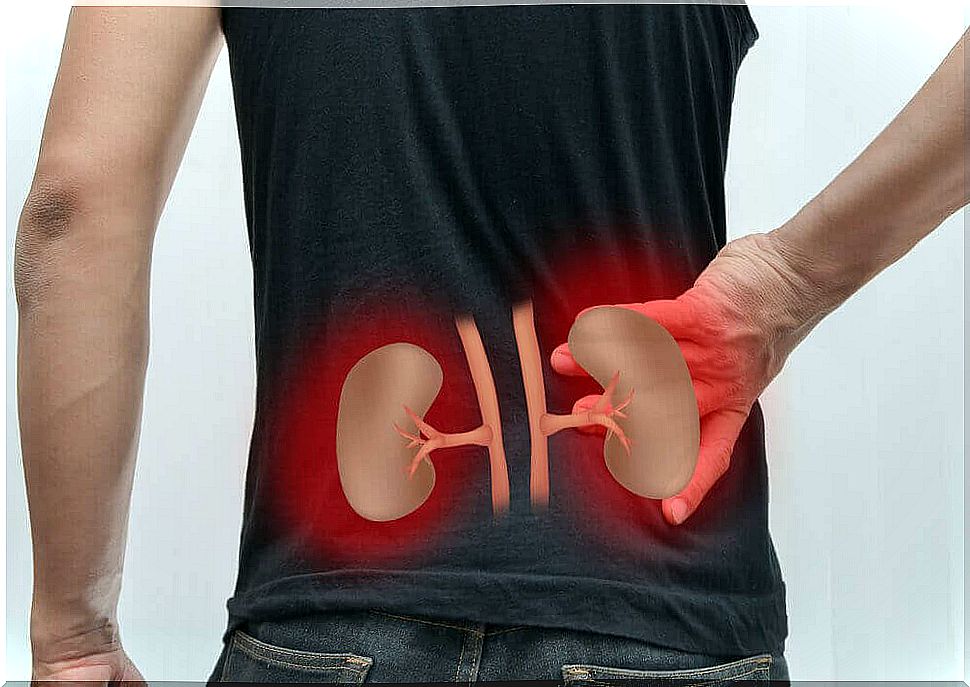
- Liver cirrhosis makes it difficult for water to pass through the liver. This can cause fluid retention in the abdomen and lower extremities.
- Kidney disease and heart problems cause edema in certain places. That’s because the fluids can’t flow freely through the body.
As we explained above, the kidneys control the drainage of fluid through the urine. If this process changes, the fluids remain in a certain area of the body.
It is essential to get the help of a specialist. They can advise you which additional treatments are suitable to use. The patient does not have to accept fluid retention.
You can get good results with a diuretic, a special medicine to get rid of fluids. This is also the case with a diet based on special foods with a diuretic effect.
Medication Side Effects
- The use of corticosteroid drugs, some anti-inflammatories, or drugs to treat diseases such as diabetes can cause side effects such as fluid retention.
To reduce fluid retention, it is important to eat a balanced diet with enough protein. You should also use less salt during cooking and at the table.
You should also try to take a daily walk. That way you can improve the circulation of residual moisture. Furthermore, it’s a good idea to get out of your chair every hour and stretch your legs.
Measures have been taken in many companies. Some have included a few minutes of exercise every day for their employees in the work schedule. At a certain time every day they go out of the office and spend 15 minutes exercising. As a result, there will be less fluid retention among the employees.
When it comes to resting, it is important to make enough time available. Time you need to fully recover. Place a pillow under your feet to allow the blood to drain more easily.
Even more important than changing your habits is to see a doctor in time. The sooner you know the causes of fluid retention, the sooner he can prescribe an appropriate treatment.



